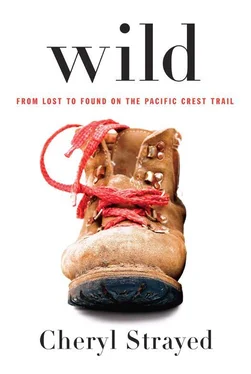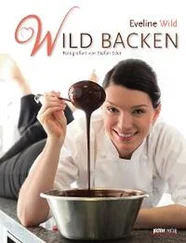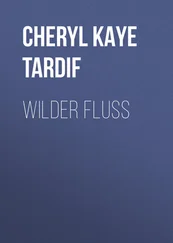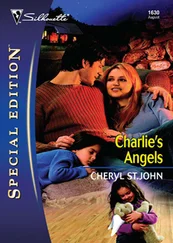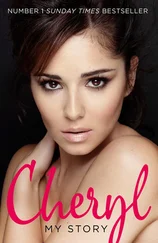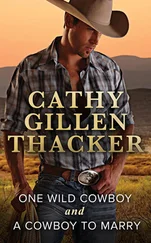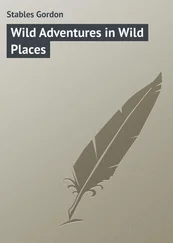Cheryl Strayed - Wild
Здесь есть возможность читать онлайн «Cheryl Strayed - Wild» весь текст электронной книги совершенно бесплатно (целиком полную версию без сокращений). В некоторых случаях можно слушать аудио, скачать через торрент в формате fb2 и присутствует краткое содержание. Год выпуска: 2012, ISBN: 2012, Жанр: Современная проза, на английском языке. Описание произведения, (предисловие) а так же отзывы посетителей доступны на портале библиотеки ЛибКат.
- Название:Wild
- Автор:
- Жанр:
- Год:2012
- ISBN:978-0-307-95765-8
- Рейтинг книги:4 / 5. Голосов: 1
-
Избранное:Добавить в избранное
- Отзывы:
-
Ваша оценка:
- 80
- 1
- 2
- 3
- 4
- 5
Wild: краткое содержание, описание и аннотация
Предлагаем к чтению аннотацию, описание, краткое содержание или предисловие (зависит от того, что написал сам автор книги «Wild»). Если вы не нашли необходимую информацию о книге — напишите в комментариях, мы постараемся отыскать её.
Wild — читать онлайн бесплатно полную книгу (весь текст) целиком
Ниже представлен текст книги, разбитый по страницам. Система сохранения места последней прочитанной страницы, позволяет с удобством читать онлайн бесплатно книгу «Wild», без необходимости каждый раз заново искать на чём Вы остановились. Поставьте закладку, и сможете в любой момент перейти на страницу, на которой закончили чтение.
Интервал:
Закладка:
“Perhaps you should try a shorter trip first,” Paul had suggested when I told him about my plan during one of our should-we-stay-together-or-get-divorced discussions several months before.
“Why?” I’d asked with irritation. “Don’t you think I can hack it?”
“It isn’t that,” he said. “It’s only that you’ve never gone backpacking, as far as I know.”
“I’ve gone backpacking!” I’d said indignantly, though he was right: I hadn’t. In spite of all the things I’d done that struck me as related to backpacking, I’d never actually walked into the wilderness with a backpack on and spent the night. Not even once.
I’ve never gone backpacking! I thought with a rueful hilarity now. I looked suddenly at my pack and the plastic bags I’d toted with me from Portland that held things I hadn’t yet taken from their packaging. My backpack was forest green and trimmed with black, its body composed of three large compartments rimmed by fat pockets of mesh and nylon that sat on either side like big ears. It stood of its own volition, supported by the unique plastic shelf that jutted out along its bottom. That it stood like that instead of slumping over onto its side as other packs did provided me a small, strange comfort. I went to it and touched its top as if I were caressing a child’s head. A month ago, I’d been firmly advised to pack my backpack just as I would on my hike and take it on a trial run. I’d meant to do it before I left Minneapolis, and then I’d meant to do it once I got to Portland. But I hadn’t. My trial run would be tomorrow — my first day on the trail.
I reached into one of the plastic bags and pulled out an orange whistle, whose packaging proclaimed it to be “the world’s loudest.” I ripped it open and held the whistle up by its yellow lanyard, then put it around my neck, as if I were a coach. Was I supposed to hike wearing it like this? It seemed silly, but I didn’t know. Like so much else, when I’d purchased the world’s loudest whistle, I hadn’t thought it all the way through. I took it off and tied it to the frame of my pack, so it would dangle over my shoulder when I hiked. There, it would be easy to reach, should I need it.
Would I need it? I wondered meekly, bleakly, flopping down on the bed. It was well past dinnertime, but I was too anxious to feel hungry, my aloneness an uncomfortable thunk that filled my gut.
“You finally got what you wanted,” Paul had said when we bade each other goodbye in Minneapolis ten days before.
“What’s that?” I’d asked.
“To be alone,” he replied, and smiled, though I could only nod uncertainly.
It had been what I wanted, though alone wasn’t quite it. What I had to have when it came to love was beyond explanation, it seemed. The end of my marriage was a great unraveling that began with a letter that arrived a week after my mother’s death, though its beginnings went back further than that.
The letter wasn’t for me. It was for Paul. Fresh as my grief was, I still dashed excitedly into our bedroom and handed it to him when I saw the return address. It was from the New School in New York City. In another lifetime — only three months before, in the days before I learned my mother had cancer — I’d helped him apply to a PhD program in political philosophy. Back in mid-January, the idea of living in New York City had seemed like the most exciting thing in the world. But now, in late March — as he ripped the letter open and exclaimed that he’d been accepted, as I embraced him and in every way seemed to be celebrating this good news — I felt myself splitting in two. There was the woman I was before my mom died and the one I was now, my old life sitting on the surface of me like a bruise. The real me was beneath that, pulsing under all the things I used to think I knew. How I’d finish my BA in June and a couple of months later, off we’d go. How we’d rent an apartment in the East Village or Park Slope — places I’d only imagined and read about. How I’d wear funky ponchos with adorable knitted hats and cool boots while becoming a writer in the same romantic, down-and-out way that so many of my literary heroes and heroines had.
All of that was impossible now, regardless of what the letter said. My mom was dead. My mom was dead. My mom was dead. Everything I ever imagined about myself had disappeared into the crack of her last breath.
I couldn’t leave Minnesota. My family needed me. Who would help Leif finish growing up? Who would be there for Eddie in his loneliness? Who would make Thanksgiving dinner and carry on our family traditions? Someone had to keep what remained of our family together. And that someone had to be me. I owed at least that much to my mother.
“You should go without me,” I said to Paul as he held the letter. And I said it again and again as we talked throughout the next weeks, my conviction growing by the day. Part of me was terrified by the idea of him leaving me; another part of me desperately hoped he would. If he left, the door of our marriage would swing shut without my having to kick it. I would be free and nothing would be my fault. I loved him, but I’d been impetuous and nineteen when we’d wed; not remotely ready to commit myself to another person, no matter how dear he was. Though I’d had attractions to other men since shortly after we married, I’d kept them in check. But I couldn’t do that anymore. My grief obliterated my ability to hold back. So much had been denied me, I reasoned. Why should I deny myself?
My mom had been dead a week when I kissed another man. And another a week after that. I only made out with them and the others that followed — vowing not to cross a sexual line that held some meaning to me — but still I knew I was wrong to cheat and lie. I felt trapped by my own inability to either leave Paul or stay true, so I waited for him to leave me, to go off to graduate school alone, though of course he refused.
He deferred his admission for a year and we stayed in Minnesota so I could be near my family, though my nearness in the year that followed my mother’s death accomplished little. It turned out I wasn’t able to keep my family together. I wasn’t my mom. It was only after her death that I realized who she was: the apparently magical force at the center of our family who’d kept us all invisibly spinning in the powerful orbit around her. Without her, Eddie slowly became a stranger. Leif and Karen and I drifted into our own lives. Hard as I fought for it to be otherwise, finally I had to admit it too: without my mother, we weren’t what we’d been; we were four people floating separately among the flotsam of our grief, connected by only the thinnest rope. I never did make that Thanksgiving dinner. By the time Thanksgiving rolled around eight months after my mom died, my family was something I spoke of in the past tense.
So when Paul and I finally moved to New York City a year after we had originally intended to, I was happy to go. There, I could have a fresh start. I would stop messing around with men. I would stop grieving so fiercely. I would stop raging over the family I used to have. I would be a writer who lived in New York City. I would walk around wearing cool boots and an adorable knitted hat.
It didn’t go that way. I was who I was: the same woman who pulsed beneath the bruise of her old life, only now I was somewhere else.
During the day I wrote stories; at night I waited tables and made out with one of the two men I was simultaneously not crossing the line with. We’d lived in New York only a month when Paul dropped out of graduate school, deciding he wanted to play guitar instead. Six months later, we left altogether, returning briefly to Minnesota before departing on a months-long working road trip all across the West, making a wide circle that included the Grand Canyon and Death Valley, Big Sur and San Francisco. At trip’s end in late spring, we landed in Portland and found restaurant jobs, staying first with my friend Lisa in her tiny apartment and then on a farm ten miles outside the city, where — in exchange for looking after a goat and a cat and a covey of exotic game hens — we got to live rent-free for the summer. We pulled the futon from our truck and slept on it in the living room under a big wide window that looked out over a filbert orchard. We took long walks and picked berries and made love. I can do this , I thought. I can be Paul’s wife .
Читать дальшеИнтервал:
Закладка:
Похожие книги на «Wild»
Представляем Вашему вниманию похожие книги на «Wild» списком для выбора. Мы отобрали схожую по названию и смыслу литературу в надежде предоставить читателям больше вариантов отыскать новые, интересные, ещё непрочитанные произведения.
Обсуждение, отзывы о книге «Wild» и просто собственные мнения читателей. Оставьте ваши комментарии, напишите, что Вы думаете о произведении, его смысле или главных героях. Укажите что конкретно понравилось, а что нет, и почему Вы так считаете.
